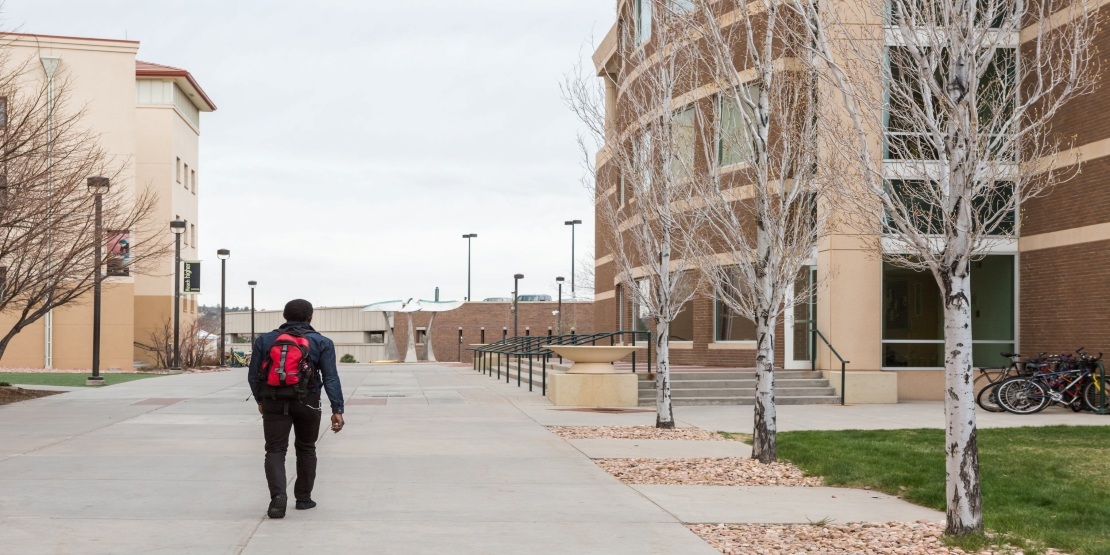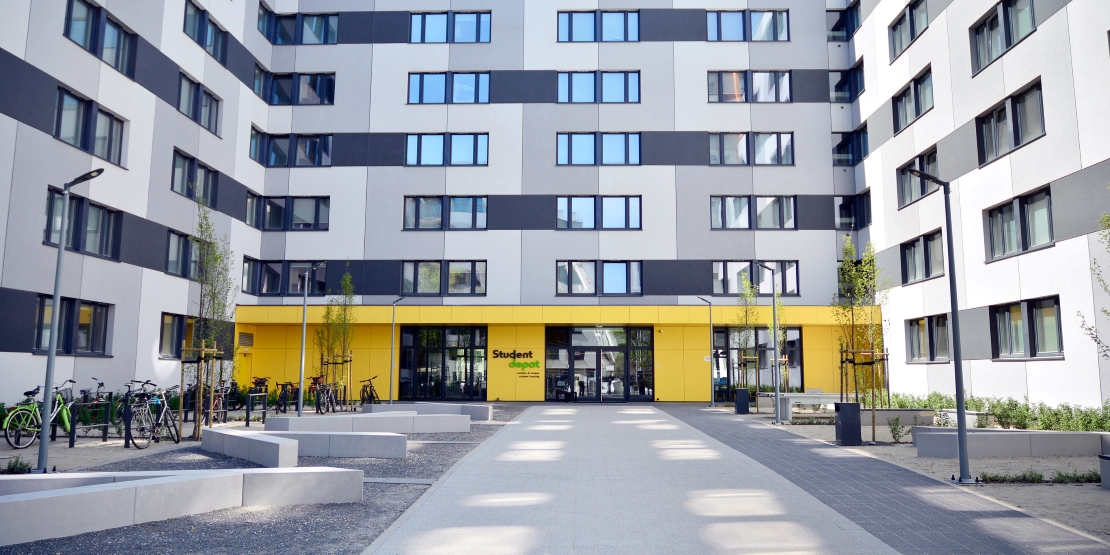Housing is every student’s top priority upon arrival at university. Getting a place that is affordable, close to the university and suits your needs can be overwhelming. But don’t worry, we’re here to help. We will provide you with some great tips so you can find the perfect student house rentals to live in. International students can find plenty of on-campus housing options. However, the options are now limited due to COVID-19. Shared dorms have been converted into single dorms or have completely shut down. This has led to a decrease in the number of students living on campus. Fortunately, there are many housing options for students. If you’re not sure how to start, this post is for you. We’ve discussed everything you need to know about house rentals and more.
Determine Your Monthly Budget

Before you start exploring your rental options, make sure you set a specific budget in mind. Decide a particular amount or range that you can afford to pay every month. The average rental prices in Canada’s largest cities such as Montreal, Toronto and Vancouver are higher. On the other hand, the prices in smaller towns and cities are lower comparatively.
For those looking for a nice and cost-friendly option, be prepared to pay at least 700 to 1000 CAD per room, per month. You can expect this range for shared accommodations. But if you are planning to live in a one-bedroom or studio apartment, you may have to pay within the range of 1,200 CAD or more. Food, furniture, transportation and utilities may or may not be included in this cost, so make sure you determine your budget accordingly.
Choose a Student House Rentals
Let us now discuss the housing options available for international students studying at a college or university. Toronto has everything from furnished vacation rentals to customized private apartments. We’ll discuss the best possible options for students so you can choose the best option for your needs.
On-Campus Housing
Residence living is a one-of-a-kind experience for students. Universities realize this and thus put in a lot of effort in ensuring their experience is comfortable and memorable. Each university offers a range of housing options that help build a fun and supportive community. It allows students to take part in events, athletic facilities, walk to classes and libraries, etc. A close-knit community also encourages students to take part in recreational activities, study groups, sports events, club activities etc.
Options to choose from:
- Apartment Style vs Dorm Style
- Private vs Common Kitchen
- Co-Ed or Non-Coed
- Meal Plans
Off-Campus Housing
Many privately owned (not associated with any colleges or universities) offer accommodation arrangements similar to ‘‘on-campus residents”. These buildings are available in downtown Toronto.
Rental Condos
You’ll find tons of properties available on lease. They range from a condo unit (1-2 bedrooms) to townhouses and full-sized (detached) homes. A condo in Toronto allows you to get a complete apartment, unlike residences that offer access to shared facilities. Security systems, gyms, pools, concierge, party rooms, etc are just a few amenities that come with a condo. And if you choose a luxurious condo, you will get this and more amenities like a full kitchen and on-site laundry. Whether you need help filtering searches or booking showings, just reach out to us. We’d be happy to provide you with some referrals.
More About On-Campus Housing Options for Students
A lot of post-secondary schools offer student house rentals accommodation options for students that are fully furnished. It is a fantastic option for international students in particular who wish to be within the walking distance of the university. Some on-campus options also comprise a meal plan with a dining hall system that helps you remove the need for hiring such a cook. Now, you may or may not get these amenities due to COVID-19.
Is it Necessary for International Students to Live On-campus?

No, international students don’t need to live on campus unless the university offers a specific housing program. Many universities also provide priority access to their students and have varied policies concerning student housing.
Different Kinds of Housing Available On-campus?
Generally, big universities have numerous kinds of student house rentals plans available on campus. First-year students tend to have dorm-style apartments with shared facilities such as dining halls, common areas and bathrooms. Some universities also have townhouses and apartments with one to four bedrooms which are generally reserved for senior year students. Thus, you need to check your university’s website and check all the housing arrangements they offer.
Average Costing of On-campus Housing?
For student tenants with an 8-month campus housing and meal plan, the cost is somewhere around 6000 CAD to 14,000 CAD or more. To get the exact figure, contact your university. Make sure you confirm the cost of on-campus housing before joining.
When Should You Apply for On-campus Housing?
On-campus housing is a convenient accommodation option for students which keeps it high in mind. To get timely acceptance, you need to apply in advance. Get in touch with the university’s housing office to learn more about the application process.
Advantages of On-Campus Housing for Students

- The average rental price includes utilities and food
- Round-the-clock student housing support in most universities
- Close to classes, no need to pay travel costs
- Closer to campus facilities like gym, library, etc
- The rental price of on-campus housing comprises food and utilities
- 24/7 housing support
Off-Campus Student House Rentals
Students who choose off-campus housing can find it hard to begin searching for options. For those who are new to Canada, we suggest searching for a room or apartment online. There are various websites as well as social media platforms that can help you find student house rentals within your budget. Facebook in particular has multiple groups dedicated to student housing. Join a few of those groups and you’d be able to get a rental home within a few days itself.
While finding options online is easy, beware of scams. Here’s how you can do that:
- Ignore deals that sound “too good to be true” i.e. prices are extremely low
- Do not send any personal details to a potential landlord
- If you can’t visit the apartment or room in person due to pandemic restrictions, ask for a video chat room tour that lets you view the place closely.
- Don’t send money if you don’t think the listing is legitimate
Maintaining a Balance a Between Cost & Convenience

Amenities and Commute
By choosing a rental home in downtown Toronto, you attain similar conveniences like walking to the class and staying late on campus to participate in extracurricular activities. With a condo, you enjoy these facilities along with a private or semi-private suite. However, there is no denying that this is an expensive option. There are several areas in Toronto for people who prefer larger living spaces, a space that gives them more privacy. These include Yonge and Finch, Yonge and Eglinton, King West, Liberty Village, Distillery District. You can also opt for suburbs like St. Clair West Village, Richmond Hill, Markham, Scarborough, Vaughan Metropolitan Centre, etc. They’re all easy to commute through public transport (GoTrain or TTC).
Furniture
A majority of these places are unfurnished. We suggest going for a cost-saving option and purchasing furniture online via shopping websites or social media groups. Even Ikea is a great place to shop more for less. Some suites come fully furnished as well but then they are more expensive. So, make sure you choose wisely.
TIP: Don’t forget to consider the internet connection. Check whether the place has cheap internet providers nearby.
Room Rentals
It is a common choice of accommodation especially for people coming from outside Canada or Toronto. It allows people to enjoy the warmth of a host family and makes adjusting to a new place and lifestyle a lot easier. Home stay gives you two options – to choose an independent home stay or a family home stay. The cost is typically less costly than most on-campus options and comprises a furnished room, meal plans and other facilities like WiFi and onsite laundry.
With a home stay, you can expect a furnished room, clean linens, private storage for storing personal belongings, a place to study, and shared bathroom access. Additionally, they are located in safe neighbourhoods with quick access to public transportation. Home stay also offers easy public transport access which means it takes only an hour/half an hour from colleges and universities. The duration for home stays typically lasts a semester or a full academic year.
Renter’s Insurance

Tenant or Renter’s insurance (also known as content insurance) is a house insurance policy. It is insurance that covers your liability, personal property and extra living expenses in case of a claim. It contains three major elements namely: –
Content Coverage
Just the thought of someone breaking into your house and robbing off your beloved belongings is scary, isn’t it? Will you be able to recover from all the losses? Most people cannot. Damages caused by fire, flood or robbery in your home can be covered by tenant insurance. It isn’t just limited to your home but also extends to vehicles and gadgets. For instance, if you forget your laptop at the back of a cab or your car gets stolen from outside your office, this insurance will help you get a replacement.
Personal Liability in Case of Damage or Injury
Personal liability covers costs related to lawsuits caused by accidental property damage or someone getting hurt in your home. Let’s assume you forget to turn off a tap and the overflow leads to a flood in the apartment below, your neighbour downstairs could sue you for this. Or, if a guest visits and ends up getting hurt in your home, they could sue you for the cost of recovery or anything else that occurs due to the accident. Lawsuits like these can cost thousands of Canadian dollars or even more than that could make you go bankrupt. Personal liability insurance will help you save money and prevent paying these costs.
Living Expenses Reimbursement
If you come across a problem due to an insured peril, you may have to leave the place till the matter gets fixed. Those with friends and family in Canada could stay with them. Those who do not know anyone in the country can rely on tenant insurance. It helps you with temporary accommodation, transportation as well as meal costs till your house is ready to move back.
Wrapping Up
We tried as many aspects of student accommodation in Canada as possible and hope our guide helps you find the right place. If you’re eager to read more tips for tenants, stay tuned! Don’t forget to take a look at the below-mentioned FAQs to get better clarity on student rentals in Canada.
Frequently Asked Questions (FAQs)
How do I get accommodation in Canada as a student?
To secure accommodation in Canada, students can explore on-campus housing options through their university's housing office or website. Websites like Craigslist, Kijiji, and local Facebook groups are useful for off-campus housing. It's advisable to start searching early, ideally a few months before the semester begins, to secure the best options.
How much do students pay for rent in Canada?
International students in Canada can choose from townhouses, dorms, shared or private apartments, and homestays. Student rent varies from $500 to $4000 monthly, depending on the housing type. Students might consider studios or unfurnished apartments for cheaper options and share the space to lower costs. Utilities typically cost between 90 to 95 CAD per month.
How do international students find rooms to rent?
International students can find rental rooms through online platforms like Kijiji or Craigslist. These websites often feature ads from students seeking roommates or offering short-term rentals and sublets in the area.
How do you rent an apartment in Canada as an international student?
To rent an apartment in Canada, international students should research the local rental market online, understand local tenant rights and responsibilities, gather essential documents, such as proof of financial support, references, and potentially a co-signer, and reach out to landlords to arrange viewings, discuss lease terms, and try to negotiate if possible.











